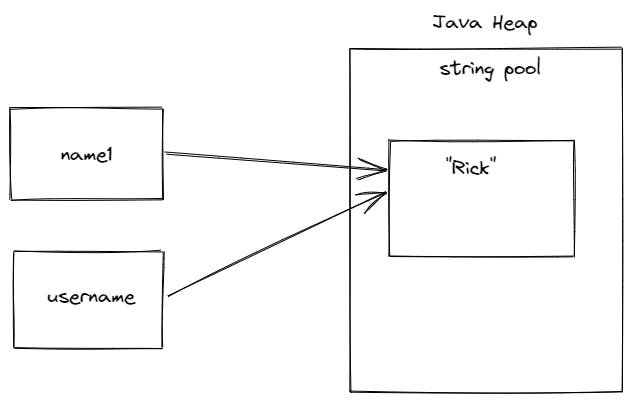What Is Unalterable Strings and Just How It Works
In the realm of programs, understanding the idea of immutable strings is extremely important for producing robust and secure applications. Unalterable strings describe strings that can not be altered after they are developed, making certain data integrity and predictability within the code. This fundamental concept plays a critical duty in numerous shows languages and uses a special technique to dealing with data. By discovering the ins and outs of how unalterable strings function, one can discover a world of benefits and possibilities that can boost the top quality and performance of software program growth.
The Fundamentals of Unalterable Strings
Immutable strings, as an essential principle in programs, are character series that can not be transformed when they are produced. This means that as soon as a string is designated a value, that value can not be modified. In languages like Python and Java, strings are immutable things, bring about different ramifications in regards to memory management and information stability.
Among the vital advantages of immutable strings is that they offer a complacency in data adjustment. Since the content of an unalterable string can not be modified, it makes sure that the original information stays intact, decreasing the risk of unintentional adjustments throughout program implementation (Why are strings immutable in Java?). This property also simplifies debugging processes, as developers can rely on that once a string is defined, its value will certainly not be unintentionally changed
When a new string is produced based on an existing one, instead than customizing the original string, the brand-new value is saved independently. Generally, comprehending the essentials of immutable strings is vital for mastering programs concepts and enhancing code efficiency.
Advantages of Unalterable Strings
Structure upon the safety and effectiveness advantages of unalterable strings, their advantages encompass improving code dependability and streamlining simultaneous programs tasks. By being immutable, strings can not be modified after production, which removes the danger of unintended adjustments in the data they store. This inherent immutability ensures that once a string is created, its value remains consistent throughout the program's execution, minimizing the opportunities of insects brought on by unexpected modifications.
Furthermore, unalterable strings add to code integrity by making it simpler to reason concerning the state of a program. Given that strings can not be changed, developers can rely on that a string will certainly always hold the very same value, streamlining debugging and maintenance efforts. This predictability leads to a lot more steady and reputable codebases.

Execution in Programming Languages
Within this content different programs languages, the incorporation of immutable strings is a fundamental facet that impacts how information is dealt with and controlled within code frameworks. The implementation of immutable strings varies throughout various programming languages, with each language providing its own mechanisms to support this principle.

In comparison, languages like C and C++ do not have integrated support for immutable strings. Developers in these languages must manually implement immutability by applying policies within their code to prevent direct adjustments to string things.
Best Practices for Collaborating With Immutable Strings
When handling immutable strings in shows languages like Java and Python, adhering to ideal methods ensures reliable and secure data adjustment. One of the crucial finest techniques is to utilize StringBuilder or StringBuffer rather than straight controling strings, especially when managing comprehensive concatenation operations. These classes supply mutable alternatives for string control, aiding to avoid unnecessary memory allowances and boosting performance.
An additional finest technique is to make use of string interpolation or formatting works offered by the language instead of manual concatenation. This not only boosts readability yet additionally aids in avoiding usual risks such as unintentional string modifications. In addition, when dealing with sensitive information such as passwords or API tricks, it is critical to prevent keeping them as plain message in immutable strings. Using protected storage devices like char arrays or specialized collections for taking care of sensitive information assists alleviate protection threats connected with unalterable strings.
Real-world Applications and Instances
Checking out practical implementations of immutable strings in different markets exposes their substantial effect on information integrity and system dependability. In the healthcare field, unalterable strings play an important duty in ensuring the protection and discretion of client information. By stopping unauthorized alterations to sensitive details such as clinical documents and prescriptions, unalterable strings help keep conformity with strict privacy laws like HIPAA.
Banks additionally take advantage of the immutable nature of strings to improve the safety of consumer data and purchase visit this site records. Immutable strings assist stop fraudulence and unauthorized changes to monetary details, providing a robust protection versus cyber threats and making certain the trust and self-confidence of clients.

Conclusion
Finally, unalterable strings are repaired and stable series of personalities that use benefits such as string safety and improved performance in programs. They are applied in different programs languages to make certain data integrity and safety. Ideal practices for collaborating with unalterable strings consist of preventing straight alterations and using techniques that return new string things. Real-world applications of immutable strings include data encryption, caching, and string control jobs.
Immutable strings refer to strings that can not be altered after they are created, guaranteeing data stability and predictability within the code. When a brand-new string is developed based on an existing one, instead than changing the initial string, the new value is stored separately.In languages like Java and Python, strings are immutable by default, meaning that as soon as a string item is produced, its value can not be altered - Why are strings immutable in Java?. Finest practices for working with immutable strings consist of staying clear of direct alterations and utilizing methods that return new string things. Real-world applications of unalterable strings consist of information security, caching, and string adjustment jobs